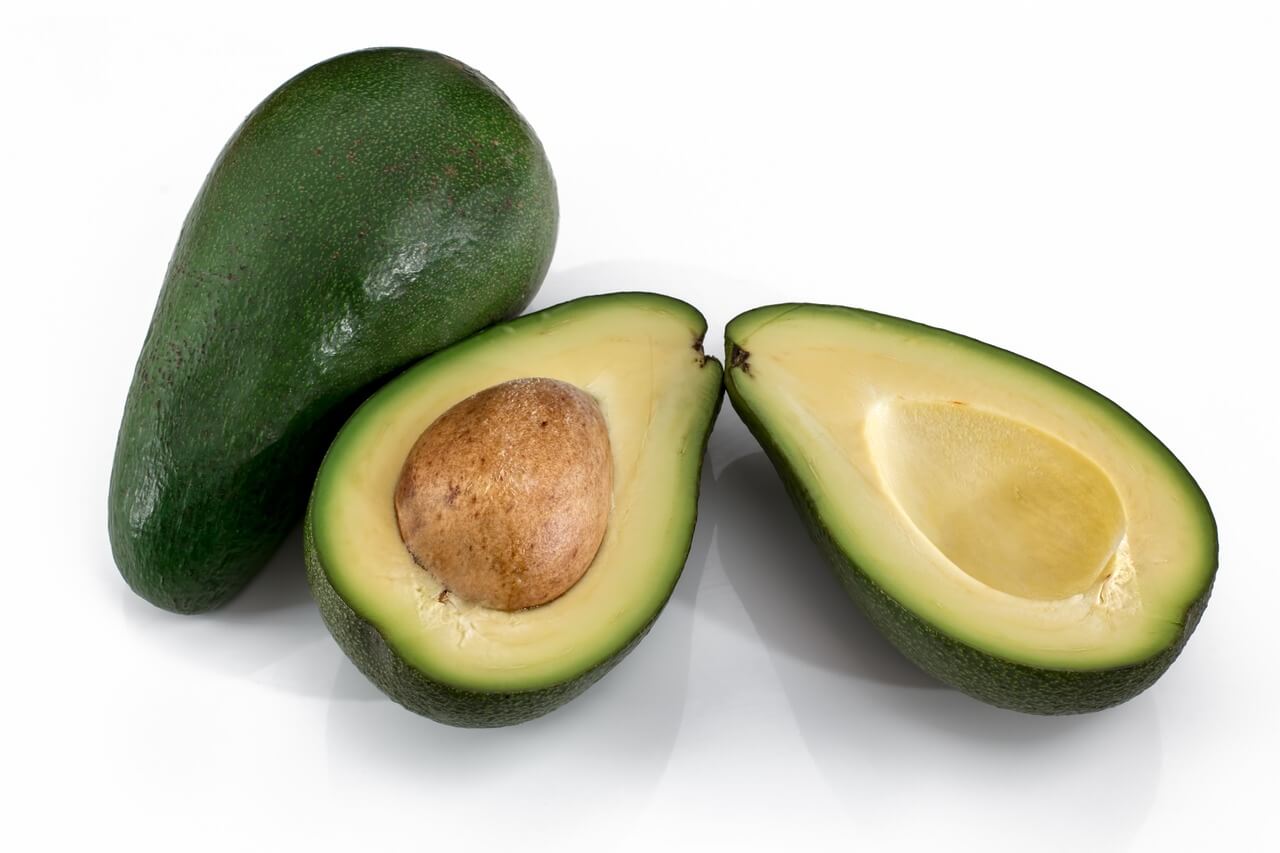Introduction
Avocados have surged in popularity over the past few decades, due in large part to their rich taste, creamy texture, and abundant health benefits. Known as a nutrient powerhouse, avocados are loaded with heart-healthy monounsaturated fats, fiber, and numerous vitamins and minerals, including vitamin K, folate, vitamin C, potassium, vitamin E, and vitamin B5 & B6 [1].
A. The Popularity and Health Benefits of Avocados
From avocado toast to guacamole, this versatile fruit has been embraced by many different cultures and cuisines, transforming into a staple food item in households worldwide. Besides being incredibly delicious, numerous studies have demonstrated the positive impact of avocados on health, showing potential benefits for weight management, heart health, digestion, and even vision [2].
B. A Lesser-Known Aspect: The Avocado Seed
While the flesh of the avocado is commonly consumed and enjoyed, there is a lesser-known part of the avocado that has sparked a great deal of interest and debate – the seed (or pit). In stark contrast to the widely acknowledged benefits of avocado fruit, the practice of eating avocado seeds is less mainstream and more contentious. Some believe it to be a nutrient-dense part of the fruit that is usually discarded, while others caution against its consumption due to potential risks. This article aims to unlock the mystery of how to eat avocado seeds safely.
The Misconception about Avocado Seeds
Avocado seeds have been a topic of interest and controversy, primarily due to the misinformation surrounding their consumption. This has led to an ongoing debate among nutritionists, health enthusiasts, and the public at large, creating an environment of uncertainty and misconception.
A. Prevailing Beliefs Regarding the Avocado Seed
The most common belief, perpetuated by various online resources and anecdotal evidence, is that avocado seeds are nutrient powerhouses and that by discarding them, one is missing out on significant health benefits. Numerous blogs and social media posts extol the virtues of consuming avocado seeds, touting them as a superfood packed with more fiber and antioxidants than the avocado flesh itself.
B. The Facts about Avocado Seeds
Contrary to these beliefs, the scientific community holds a more conservative viewpoint. Researchers point out that while avocado seeds indeed contain nutrients, they are not meant for direct consumption due to their tough, bitter nature and potential risks. The lack of definitive, high-quality scientific research into the safety and benefits of avocado seed consumption further complicates matters. Even though some studies have found beneficial compounds in the seeds, these are mostly in vitro or animal studies, and thus cannot be directly translated to humans [3]. Therefore, it is important to approach the topic of eating avocado seeds with caution and skepticism until more research is conducted.
Nutritional Value of Avocado Seeds
While there’s a great deal of controversy surrounding the consumption of avocado seeds, one cannot deny their nutritional value. Rich in several key nutrients, avocado seeds may harbor potential health benefits, making the exploration of safe consumption methods worthwhile [4].
A. Nutrient-Dense Aspect of Avocado Seeds
The avocado seed is often considered the nutrient-dense part of the fruit, containing a high concentration of dietary fiber and beneficial antioxidants [5]. Avocado seeds also comprise phytochemicals like flavonoids and phenols, which are compounds with antioxidant properties that can protect cells from damage by neutralizing harmful free radicals [6]. Additionally, the seeds contain a good amount of healthy fats and protein.
B. Scientific Evidence Supporting the Nutritional Benefits
A body of scientific evidence supports the nutritional potential of avocado seeds. Research has found that the seeds contain a variety of phenolic compounds and are especially rich in catechins and procyanidins, which are potent antioxidants [7]. In vitro studies have demonstrated the antioxidant, anti-inflammatory, and antimicrobial properties of avocado seed extract. However, it is crucial to note that most of these studies are preliminary and further research is needed to fully understand the bioavailability and effectiveness of these nutrients when the seed is consumed.
The Process of Eating Avocado Seeds Safely
While the practice is not universally accepted, some people do eat avocado pits, citing the nutrient density and potential health benefits. For those who choose to consume avocado seeds, the process involves a few important steps to ensure safety and palatability.
A. Preparing the Avocado Pit for Consumption
The first step involves preparing the avocado pit. After scooping out the pit from a ripe avocado, it should be rinsed and de-skinned. The brown skin is often bitter and should be removed before proceeding further. Once cleaned, the pit needs to be sliced into small pieces, ready for the next step.
B. Utilizing a Powerful Blender
A powerful blender is the most efficient tool for processing avocado seeds. The blender should be capable of crushing and grinding the seed into a fine powder. This powder can then be incorporated into various dishes and drinks, offering a nutritious addition to your diet [8].
C. Incorporation into a Green Smoothie
One of the most popular methods of consuming avocado seed powder is through smoothies. By blending the seed powder with an array of nutrient-dense fruits and vegetables, the resultant green smoothie can provide a healthful, nutrient-packed meal or snack. However, it’s important to remember that the flavor of the avocado seed can be somewhat bitter, so it’s advisable to pair it with sweet fruits like bananas or berries to balance the taste.
Health Benefits of Consuming Avocado Seeds
The potential health benefits associated with consuming avocado seeds are intriguing. Rich in antioxidants and dietary fiber, these seeds could offer additional advantages, some of which are explored below.
A. Antioxidant Properties
Avocado seeds are rich in antioxidants, compounds that help neutralize harmful free radicals in the body. Free radicals can cause oxidative stress, a factor in aging and diseases like cancer and heart disease. By scavenging these free radicals, the antioxidants in avocado seeds can contribute to overall health and well-being [9].
B. Dietary Fiber and Heart Health
One of the most prominent benefits of eating avocado seeds is their high dietary fiber content. Dietary fiber plays a crucial role in maintaining heart health, helping to regulate cholesterol levels and promote healthy digestion. Consuming a diet high in fiber can potentially lower the risk of developing heart disease and type 2 diabetes [10].
C. Other Potential Benefits
While more research is needed to solidify these claims, preliminary studies suggest that avocado seed extracts may have anti-inflammatory and anti-microbial properties. These benefits could potentially assist in the treatment of diseases caused by inflammation or harmful microbes, although human studies are still needed.
Recent Research on Avocado Seed Extracts
Interest in the potential health benefits of avocado seeds has led to new research on their bioactive compounds and extracts. While still emerging, these studies hint at potential applications that could revolutionize our understanding of the avocado pit.
A. Emerging Studies on Extracts
Emerging studies have begun to investigate the specific properties of avocado seed extracts. Research is exploring the antioxidant, anti-inflammatory, and antimicrobial properties of these extracts, which could potentially contribute to health and wellness in various ways. Furthermore, scientists are also studying the potential of these extracts to inhibit the growth of cancer cells.
B. Potential Health Benefits and Uses
With the positive results from these emerging studies, avocado seed extracts could have potential health benefits beyond those traditionally associated with the fruit’s flesh. They might also have a place in industries beyond the food and health sectors, such as cosmetics and pharmaceuticals, where their potential antioxidant and antimicrobial properties could be utilized.
Frequently Asked Questions (FAQs) About Eating Avocado Seeds
With the emerging interest in eating avocado seeds, many people have questions about this practice. Below are some of the most frequently asked questions and their corresponding answers.
A. Are Avocado Seeds Safe to Eat?
The safety of eating avocado seeds is a subject of debate. Some experts argue that the seeds are safe to eat and rich in nutrients. However, others caution that more research is needed to confirm this, as the majority of studies have been done in laboratory settings or on animals, not humans.
B. Can You Eat Avocado Pits Raw?
Eating raw avocado pits is not generally recommended due to their hard and bitter nature. They are typically prepared by drying and grinding into a powder, which can then be added to smoothies, baked goods, or other foods. As always, consume in moderation and consult with a healthcare provider if you have any concerns.
C. What Does an Avocado Seed Taste Like?
Avocado seeds have a bitter taste, which is why they are usually combined with other ingredients when consumed. This bitterness is due to the concentration of phenolic compounds, which are associated with health benefits but also impart a distinct flavor [11].
Conclusion
A journey through the little-known terrain of avocado seeds has unveiled several exciting possibilities. Let’s recap the key insights and provide some final thoughts on how to eat avocado seeds safely.
A. Recap of the Potential Benefits of Eating Avocado Seeds
Our journey began with uncovering the often-ignored, nutrient-dense aspect of the avocado: its seed. The pit of this creamy, rich fruit is packed with antioxidants and dietary fiber, offering potential health benefits. Emerging research has also pointed towards the possible utility of avocado seed extracts in various industries, thanks to their antioxidant and antimicrobial properties.
B. Final Thoughts on How to Eat Avocado Seeds Safely
While the potential benefits are exciting, it’s essential to remember that eating avocado seeds should be approached with care. As they are hard and can have a strong taste, preparation typically involves drying and grinding them into a powder, often incorporated into a green smoothie or other foods. As always, moderation is key. And it is recommended to consult with a healthcare provider if there are any concerns [12].










